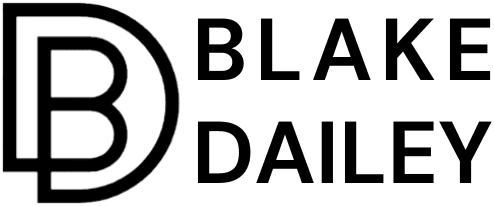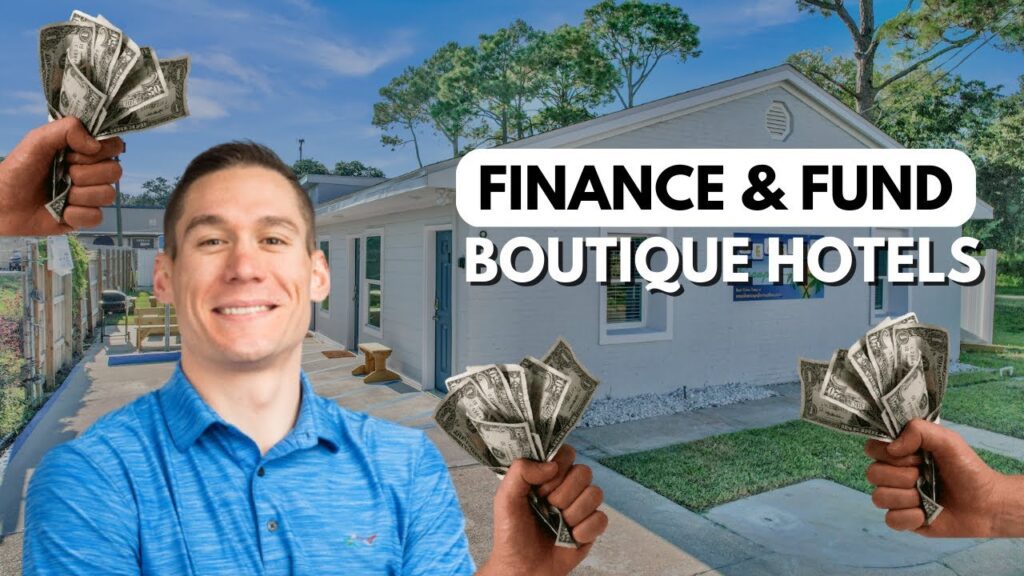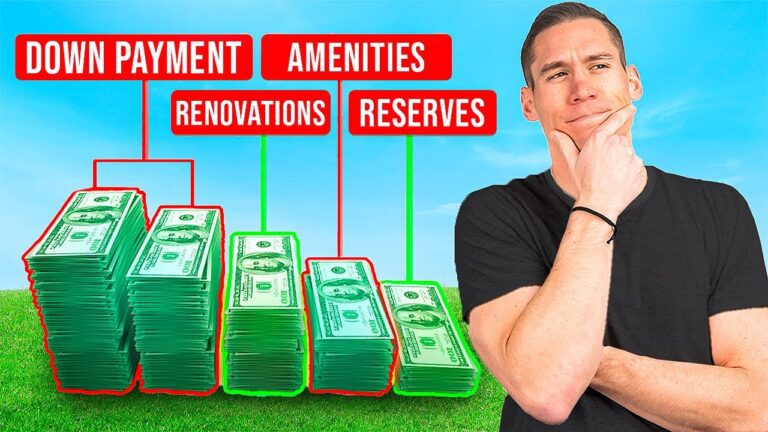Boutique hotels are amazing vehicles to create a lot of wealth and a lot of cash flow. However, if you make the wrong purchase by spending too much or taking on bad debt, you risk missing out on the equity by being unable to make the purchase in the first place or, worse yet, losing the property due to a poor capital stack. Bad debt, in my opinion is primarily variable rate with a short-term balloon payment where your note comes due in 12 or 24 months before you might be able to get the property properly stabilized. Additionally, if the interest rate rises, the deal may be terminated, or the bank may decide to repossess the note when it is due. So how you finance your deal is really important.
And there’s two parts that I want to break down for you, the purchase and the refinance.
In order to create a lot of value, there has to be a spread of what the property is worth when you buy it and when you get it completely fixed up and season the property, or have it done and renting for 12 months. Therefore, refinancing is more probable than selling for you to keep the property for a long time, maintain cash flow, and take advantage of future depreciation and tax write-offs. In real estate, that is the name of the game.
And that’s how I’ve done all of my boutique hotels. They are basically big BRRRRs, or BrrrrBNB’s. Over the past few years, I’ve purchased five boutique hotels, growing them to 85 STR units and $3 million in annual revenue. So raising money, getting debt financing, and refinancing to pull out equity is something I’ve done a lot.
The first step is getting financing you can live with upfront. Since the majority of these kinds of properties are not your sparkling jewels upon entry, I suggest, financing you can live with. To make them shine, they need you, the fearless investor. And if they have any finances at all, they are frequently bad. It takes some effort to get finance sometimes since the one I received was just numbers on a grid paper. Banks demand information such as financials, loss runs for insurance, and due diligence items. Some of these hotels run completely independent without much, or any, of that because they are mom-and-pop operators that don’t need to do anything more because they don’t have bank loans, or investors, they just do their thing. Which is great for them, but that with the property/financial condition makes it tough to get financing.
So here are some options for you to pursue financing for boutique hotels
- Bridge debt or mezzanine debt, which is shorter-term money that is more flexible. But you usually pay for it in fees and interest. They have a lot more flexibility with the condition of properties going in and the due diligence items you can get. They will basically lend conservatively off of your strength as a buyer and the strength in the upside of the property based on your proforma.
- Institional hard money (basically bridge debt with specialized lenders for commercial real estate)
- Commercial loans with local banks or credit unions
- SBA loans. They have Loan-to-cost options where they will lend both on the purchase and the repairs. For a normal loan-to-value or LTV loan, on a million dollar purchase, you’re likely going to have to bring 25% down or $250k. With a LTC loan if you have a $1M purchase and $500k in repairs, they will lend up to 75% on the $1.5M including both the purchase and repairs so it helps to keep your capital required lower and your cash on cash return higher.
- My favorite – Seller financing
I have done this on 2 of my hotels, and other deals before that. And with seller financing you avoid needing the bank at all, which is great for you and the seller. Banks want to see financials and take a long time to underwrite and can hold up closing for a long time. You can skip all that if the seller agrees to carry the note and be the bank themselves. And like we talked about in the last module, it can be good for them based on their situation because they can get interest on their loan, that interest is tax-deductible, and the the taxes on the sale are deferred because the whole amount of the sale is not earned on the purchase – so it spreads out their tax burden.
And since we already dove into the strategy of seller financing, I though it would be good to go over some discussion/negotiation points to bring up seller financing.
- The best way to gauge if it’s going to be an option is ask “What do you still owe on the property” to see if seller financing will be a feasible option. If they still owe a bunch of money on it over what you could do as a down payment to pay that loan off, then it probably isn’t worth seller financing. And you can ask “what do you plan to do with the cash from the sale” or “is there something else you’re buying” etc. to see if they have a need for the cash.
And it’s all about how you ask. Make it conversational and not like you are trying to extract information. They are going to want to be comfortable with you to seller finance, so keep that in mind.
- Ask them “If we could structure the sale to keep some income coming in for you would that be of interest, or would you rather just have the cash but no monthly income?”
The goal here is to see if the income from the monthly payments would be important to them. You can structure that question however you want to get to that answer. And if they would be interested in the income, then you talk about the benefits of seller financing to them.
- If you sense that taxes may be an issue then you could say “Since/if you don’t owe much, or anything on the property, we could structure payments so that you get your price PLUS interest, but it’s spread out so you aren’t taxed for the full amount upfront and you’ll save a lot in taxes”
And if they are a straight shooter, you can come right out and ask them “Would you be willing to carry the note and finance the purchase if I can give you some money down and structure in a good monthly payment for you, and we’ll do a balloon in a full years so that you get paid in full with interest?”
These are all conversation starters to get the ball rolling with seller financing. The key is to ask a lot of genuine questions as you work to build rapport with the seller and get a good idea for what their situation is and how seller financing may help them.
So all of the financing options I just described explain the debt portion of your capital stack. And capital stack is just the organization of the capital, or the money in your deal. And all of these, with the exception of all cash or 0% down seller financing, require a down payment. That is the equity piece of your capital stack. This is money you either need to bring to the deal yourself or raise from investors.
Now raising capital is a whole different subject, and different skill than getting good debt financing, but eventually you’ll need it. Capital, in the form of the money you are able to raise is the ultimate limiting factor in your growth. You can have all the debt lenders and all the deals in the world, and the ability to run and mange those deals, but without the capital to fund them you are stuck. And boutique hotels are bigger deals with higher purchase prices, so if you want to scale, eventually you’ll have to raise capital.
And I have a few tips for you. You guys didn’t think I was going to leave you hanging did you?
- Call everyone you know and tell them what you are doing.
- A little ninja trick for you more deferential budding capital raisers is to ask them if they know anyone that is looking to invest passively in deals. This eliminates the direct ask, and allows them to easily say no without rejecting you, and gives them the opportunity to refer other investors and even give you an intro and set the stage for you.
- Use social media. I don’t think theres a better place in the world to raise money. You have to let people know what you do and what you are looking for, and social media allows you to get in front of the masses with both of those things. You have to be careful of SEC rules, in most cases you can’t openly advertise a deal unless you do a 506© raise, but you can set the stage and use social media to connect with new people and make relationships with potential investors.
- Build your email list with lead magnets. Create something valuable that people want and then give it away for free in exchange for peoples email addresses, and that builds your list of people you can communicate directly with and share your deals when you have them.
Once you purchase the property, fix it up and improve the value and income, you’ll likely want to refinance and complete the BRRRR process – get your money out – tax free because refinances are not a taxable event – and then go buy the next property. This is how you really scale.
Now when you go to refinance the property you’ll be looking at slightly different financing options, but usually much better terms for you and that are able to be held for the long-term. Some are the same, but with different terms that will be more favorable because by this time the property will be fixed up and hopefully seasoned, or operational for at least 12 months.
- If you don’t have your property seasoned yet, you can do another bridge loan and refinance your purchase financing to bridge debt for another 12-24 months. If your project is done, you should be fairly confident that in 12 months you’ll be in a better spot to refinance. This will allow you to capture some of the equity created and pay off the principal of your investors and return some of their capital and yours while you continue to hold on for the cash flow. Be careful though because you don’t want to put yourself in a spot where you have bad debt. The goal is to get long-term fixed rate debt, for at least a period of 5 years, at a decent interest rate where you can pull out some of equity tax free and continue to hold for cash flow without the fear or pressure of a balloon payment.
- Local banks and credit unions. No one is going to have more faith in your property than local lenders. They know the local area and market forces, and have quotas of loans that they have to give. Your goal here is to build relationships with these lenders so that they can be your go to and give you the best terms deal after deal.
- SBA. More hoops to jump through and it’s a longer process, but still a good funding option. And it’s not the SBA actually lending the money but the SBA working in partnership with approved lending partners—including local and national banks—to guarantee a portion of the loan’s proceeds in the event that the borrower defaults. This arrangement allows these lenders to approve funding for small business borrowers who may not otherwise qualify due to the relatively high risk involved in small business lending.
- Pick up the phone and call every bank. It took us about 16 lenders to find the refinance for our florida hotels and it was refinancing with bridge debt because we wanted to return capital to the investors. Hospitality, especially smaller hotels can be hard to finance and this is where it takes you as the hard working investor to find an option that works. Don’t give up when you hear a no, or 10 no’s. Keep calling and in my experience, eventually you’ll find one. Necessity breeds creativity and opens options you didn’t know where there.
So each phase has it’s nuance and different requirements whether you are purchasing the property at the beginning or refinancing once the project is complete to take out your equity. In a perfect world, you can get all of your money out when you refinance, pay investors back their principal and get all of your money out and then essentially have no risk, and continue to operate the property and collect cash flow. I’d say in today’s market that the perfect BrrrrBNB is hard to find, and you may have to find a way to make the numbers work leaving some of the capital in the deal. It just has to have the cash flow to cover the increased debt and continue to provide a good return. The key with this strategy and just real estate in general is to get a good deal. Always focus on finding a good deal first and then put the financing to it that makes sense based on the deal.
If you guys have any questions on financing put them in the comments below and I’ll try to answer them or point you in the right direction. So much of it is deal dependent but if you make yourself aware of all the options, you’ll be able to match the best lending option to your specific deal. And if you guys want to keep learning about boutique hotels and scaling a short term rental business and portfolio, subscribe to the channel and I’ll see you guys next time.




